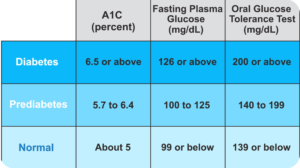Have you been using more vegetable oils in an attempt to cook healthier? You aren’t alone. Specific vegetable and seed oils have long been a staple of healthy regional eating patterns, such as the Mediterranean diet common to Italy and Greece—and now, much of America.

Although they are often lumped together as one food product, not all vegetable and seed oils are created equal. You might be surprised to learn that, in fact, some vegetable oils can actually have unhealthy effects on your body.
There are two factors that determine how healthy (or not) any given cooking oil will be. The first is the plant from which the oil is derived. For instance, canola oil—often also called “rapeseed oil,” for the crossbred plant used to produce both—has gotten bad press thanks to significant levels of erucic acid in the plant and the oil. Consumed in high amounts, erucic acid can be toxic. In reality, though, research has yet to confirm a link between specific health conditions and canola oil’s erucic acid. That’s because the amount of the toxin consumed is usually extremely low.
More damning science speaks to how certain oils are processed. Basically, manufacturers can turn to one of two methods to extract oil from plant parts or seeds: chemical or physical. The chemical process involves using solvents to dissolve solid parts and isolate the oils. The physical method entails crushing those parts under high pressure, with or without heat.
In either case, mass-produced oils are often further refined with additional chemicals. Added chemicals, such as the hydrogenated oils used to stabilize vegetable oils, can pose health risks of their own.
The greater problem, however, is the balance of fatty acids in many oils. You’re most likely familiar with the two most common fatty acids—omega-6 and omega-3. Although widely publicized as universally healthy, the traditional American diet includes far too many omega-6 fatty acids in relation to the amounts of omega-3. The ideal diet includes a roughly equal amount of these two. Some products, such as canola oil, contain high amounts of omega-6 fatty acids, adding to the imbalance.
Studies indicate that the imbalance between omega-6 and omega-3 fats can contribute to chronic inflammation in the body. That inflammation, in turn, is linked to a range of diseases from autoimmune disorders, to arthritis, to cancer.
That’s why I suggest that anyone looking to eat healthier should swap highly processed oils rich in omega-6, for more natural types that are full of omega-3 fatty acids. I recommend you:
Avoid
- Canola (rapeseed) oil
- Corn oil
- Cottonseed oil
- Peanut oil
- Soybean oil
- Sunflower oil
Use Instead
- Avocado oil
- Flaxseed oil
- Olive oil
- Walnut oil
Be aware that mass-production with chemical processing greatly reduces costs. Consequently, you’ll pay significantly more for the “good oils” on this list especially if they are labeled “cold pressed” and “organic” (both of which I highly recommend). The extra cost may seem significant, but keep in mind even a healthy diet uses a modest amount of cooking oils. The extra few dollars seems like a small price to pay for long-term health.
Share some love if you like this post!





